Marine Life & Conservation
How do you know a business is TRUE eco-tourism?
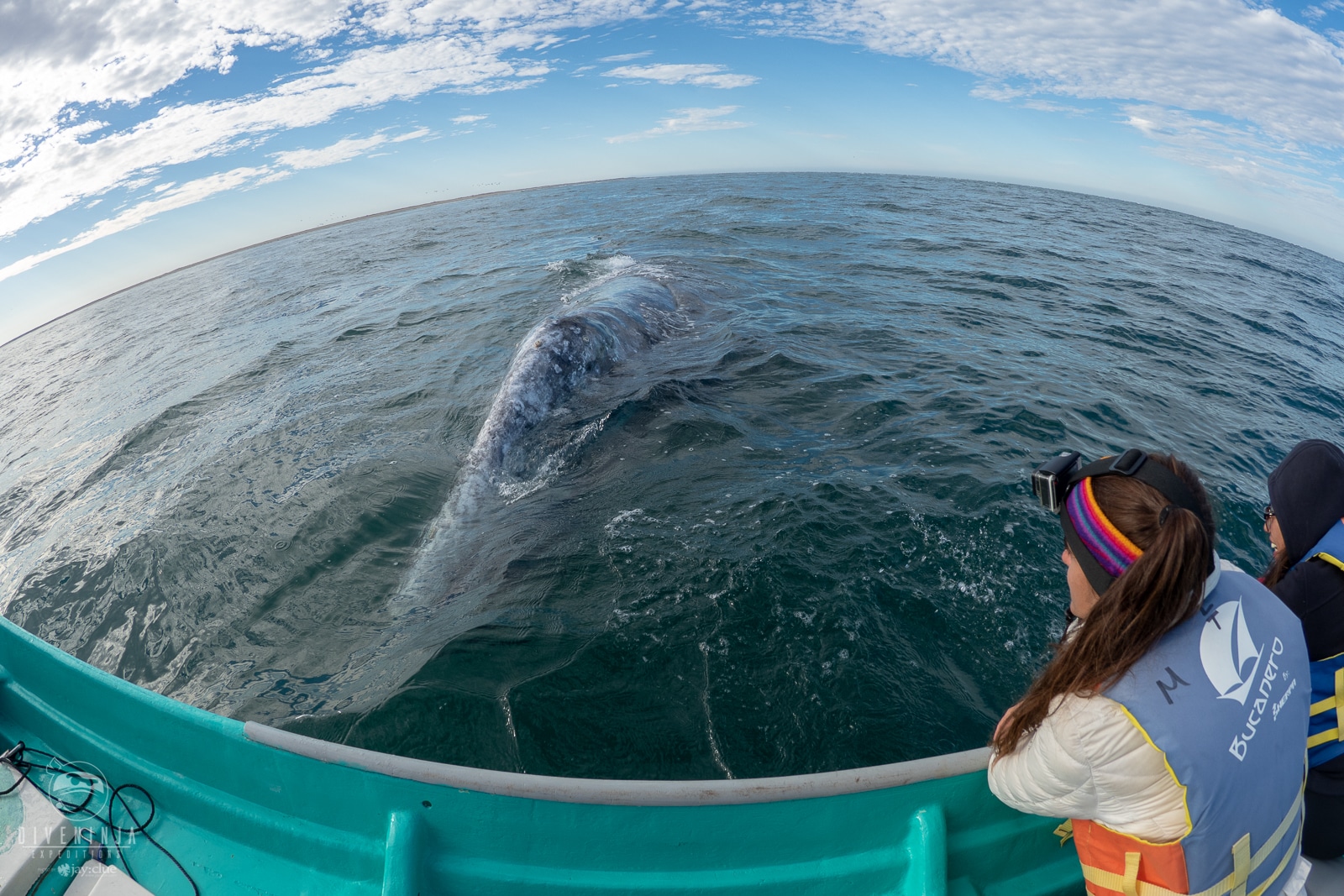
A guest article from marine biologist María Laura Marcías…
Given the current environmental problems we can all pretty much agree that we are facing a crisis. That is not something we want to think about when making plans for our next vacation. But you can help when planning your next holiday by considering choosing ecotourism activities. It is the best way to truly know a place. Exploring its natural and cultural resources, all while reducing your ecological footprint to a minimum in the process, or even better, having a positive impact.
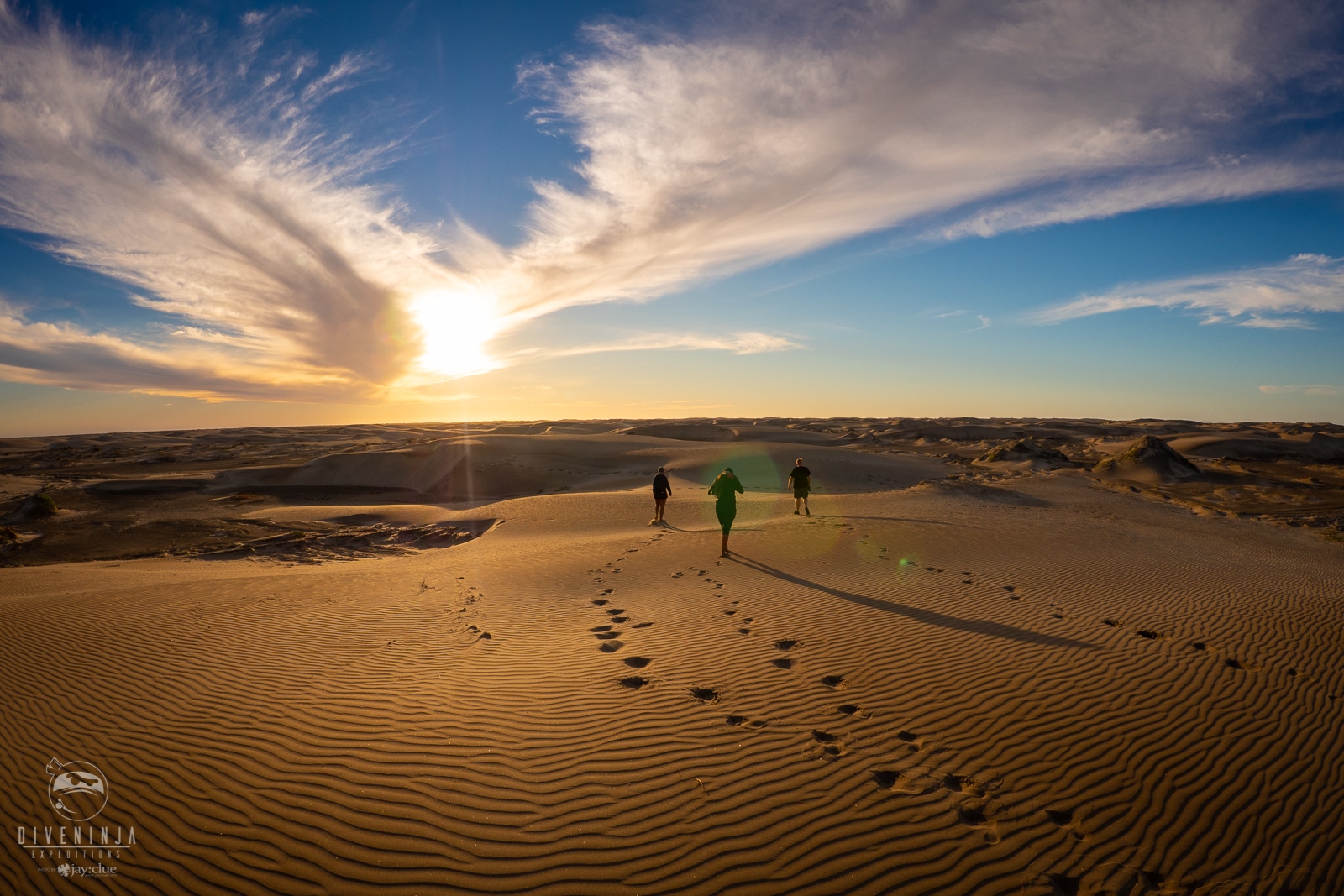
Baja California Sur (BCS) is a Mexican state with a strong touristic component from its foundation given that it has a beautiful and diverse natural and cultural heritage. With so many offers, sometimes it’s difficult to choose a good company for your trip. How do you know they behave well to the environment? In many countries there are eco-labels provided by international regulations or local nongovernmental organizations (NGOs), but this is rarely the case here. Moreover, there is an abuse of the word “eco” for marketing purposes.
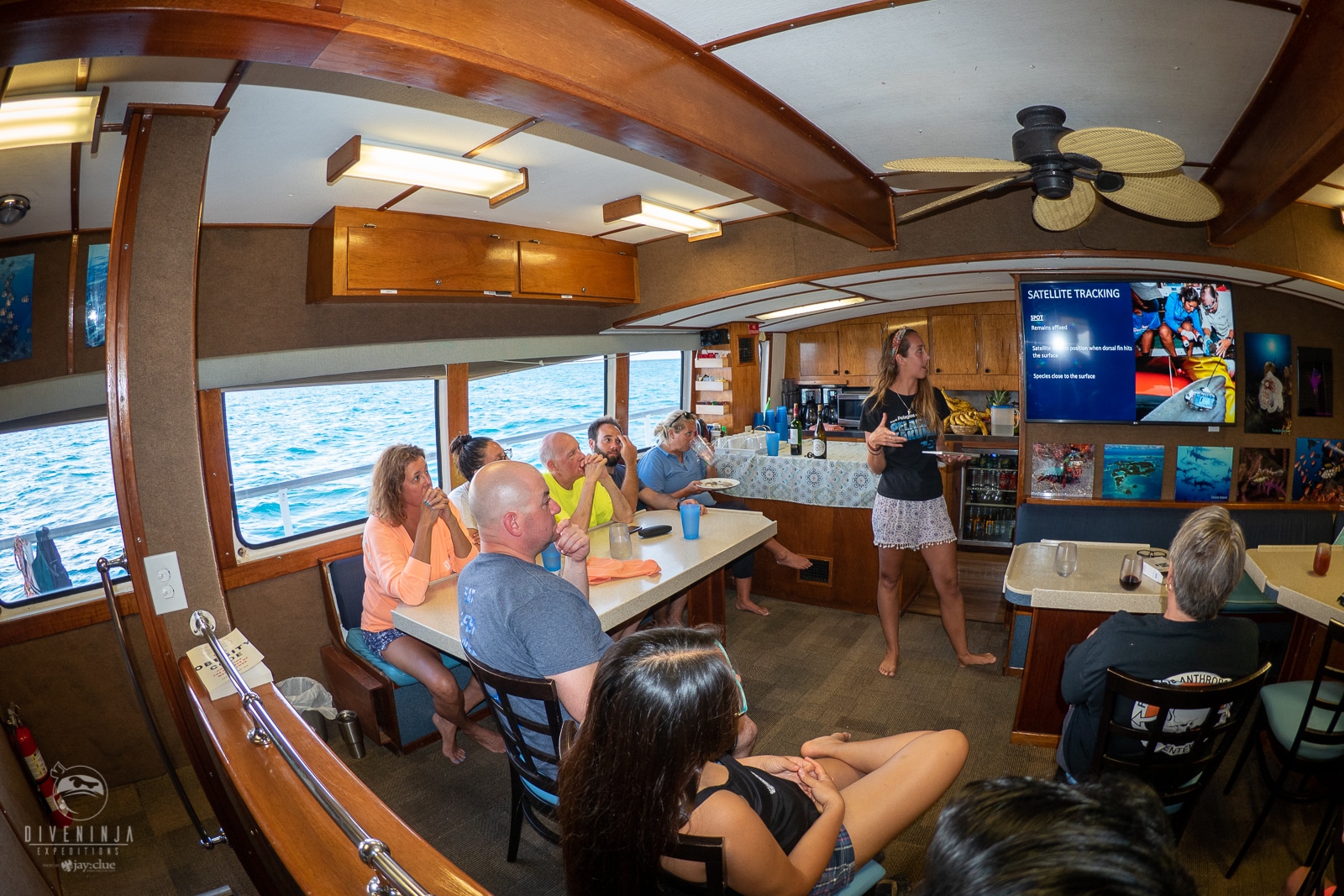
To begin, ecotourism activities must meet the following principles:
1. involve travel to natural destinations, 2. minimize negative impacts in both the environment and the local communities, 3. build environmental awareness, 4. provide direct benefits for conservation, 5. provide financial benefits and empowerment for local people, 6. respect local culture.

My name is Maru. I’m a biologist & science communicator from Argentina, who is currently working on a master’s degree in Marine Sciences with ecotourism in La Paz, BCS, Mexico. I’d like to share a few concepts and tips for you to help make your decision, based on my experience in numerous ecotourism areas:
- As mentioned before, ecotourism is any recreational activity that involves appreciation and knowledge of nature with an attitude and commitment to know, respect, enjoy and actively participate in conservation of natural and cultural resources. This works for the tourists as well as the service providers. Regarding the latter, you should ask your company of choice about local conservation programs and how can you get involved.
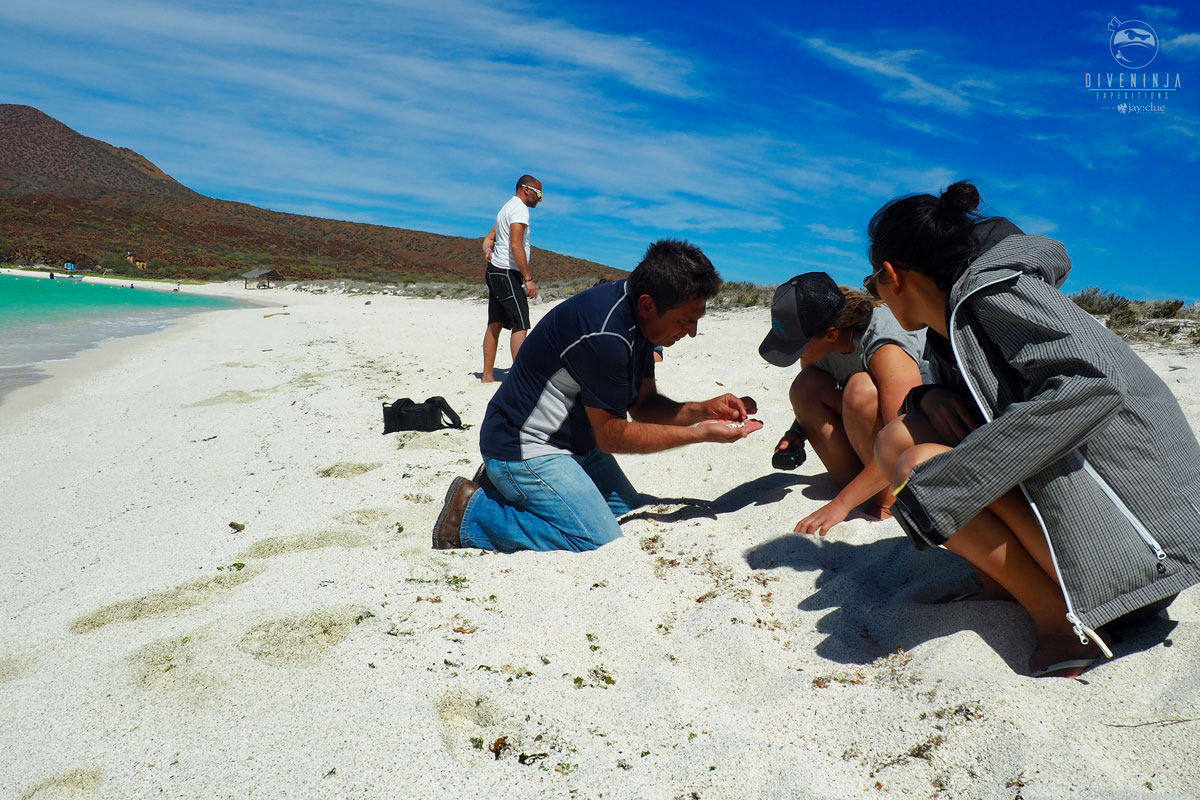
- The company should try to reduce its impact to the environment to a minimum. This involves noise disturbances, pollution, food wraps, local production of merchandising, avoiding single use plastics, and so forth. Their whole operation has to have sustainable standards.
- Of course, tour operators should approach wild animals following current regulations with extra care and with precautionary principles in mind when new situations arrive. In addition, wild animals are just that, wild. This means they will interact with us as long as they want to, so we should not interfere with their normal behavior… this includes feeding them to attract them! With enough patience and a bit of luck, sometimes you will see things you might not have even imagined, and it is always a privilege to interact with nature in its purest form.
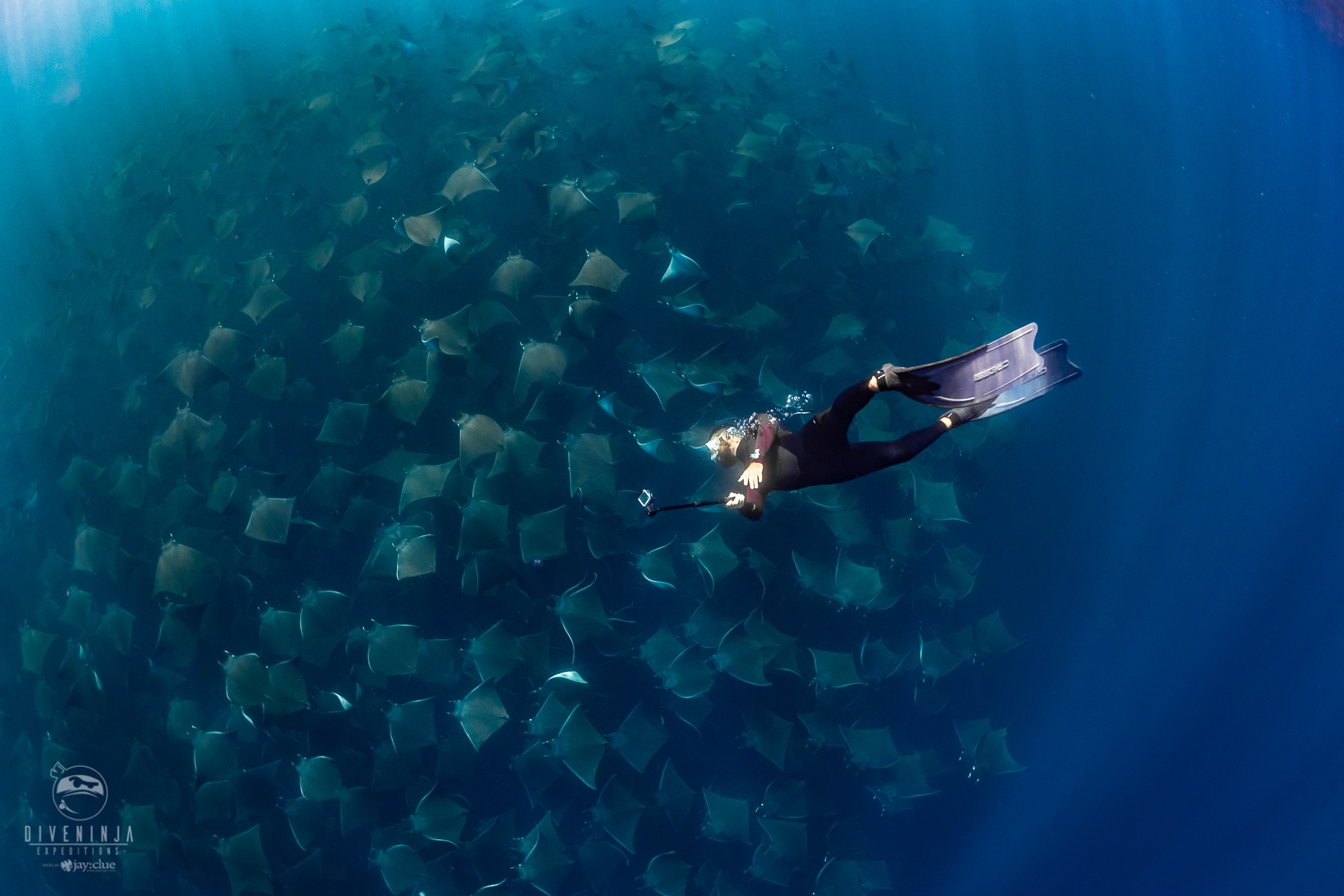
- In the best scenario, the company should have an interpretative educational program designed to increase people’s environmental awareness and pro-environmental behaviors towards the environment, not only in the place they visit, but also to take and implement back home. With social media these days, post-visit action resources can now be more easily implemented.
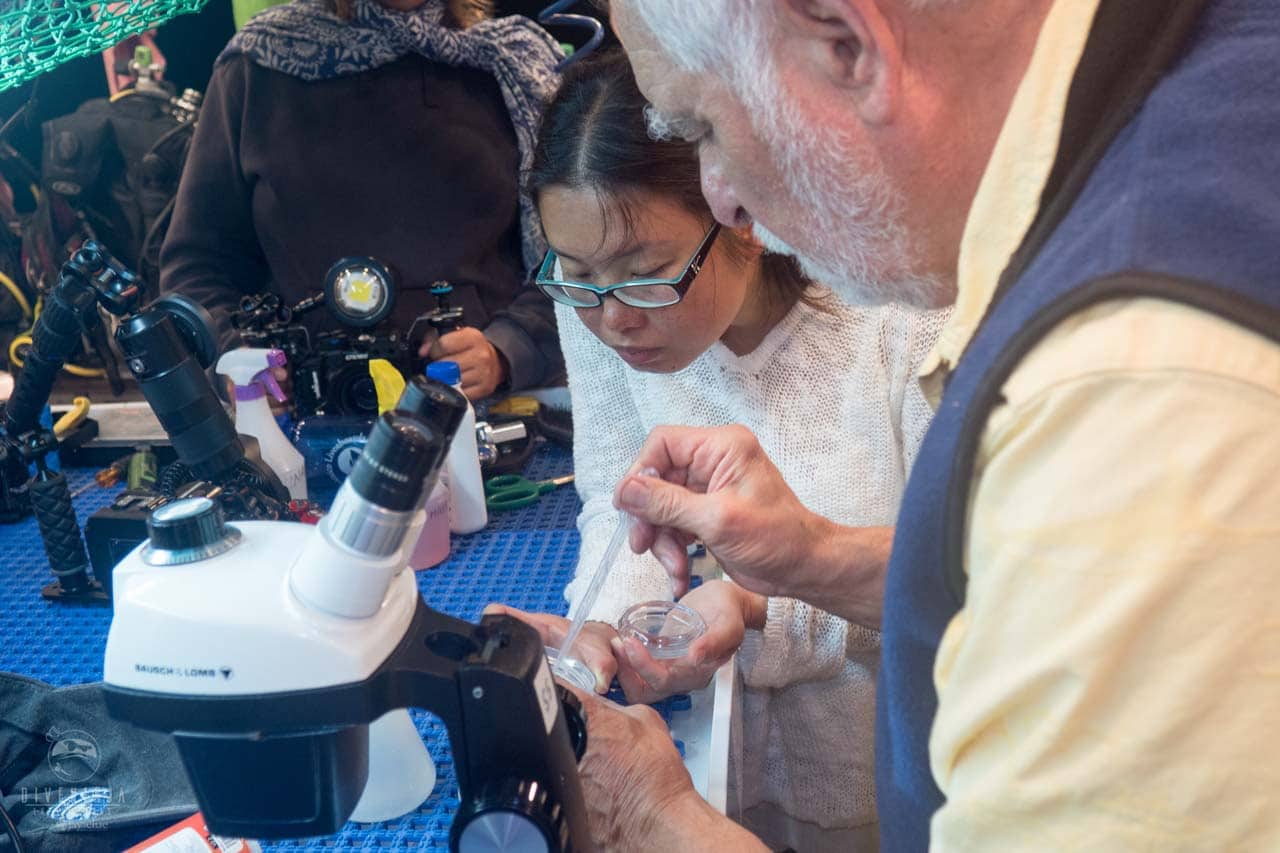
- When delivering the information, they should not “press the play button” and vomit it to you (sorry for the image) like a robot. They should take into account your personal experience, background and interests. They do not know more than you, they know different things. It’s this shared knowledge that enriches both sides of the communication process.
- Foreign companies have every right to work in the place, but must involve local people in some part of their operation. This could be done by buying local food for tourist’s meals, having local captains, or part of the tour guided by or with information provided by locals. This can certainly prove to be a plus for the tourist’s experience! Remember that ecotourism also involves cultural heritage.
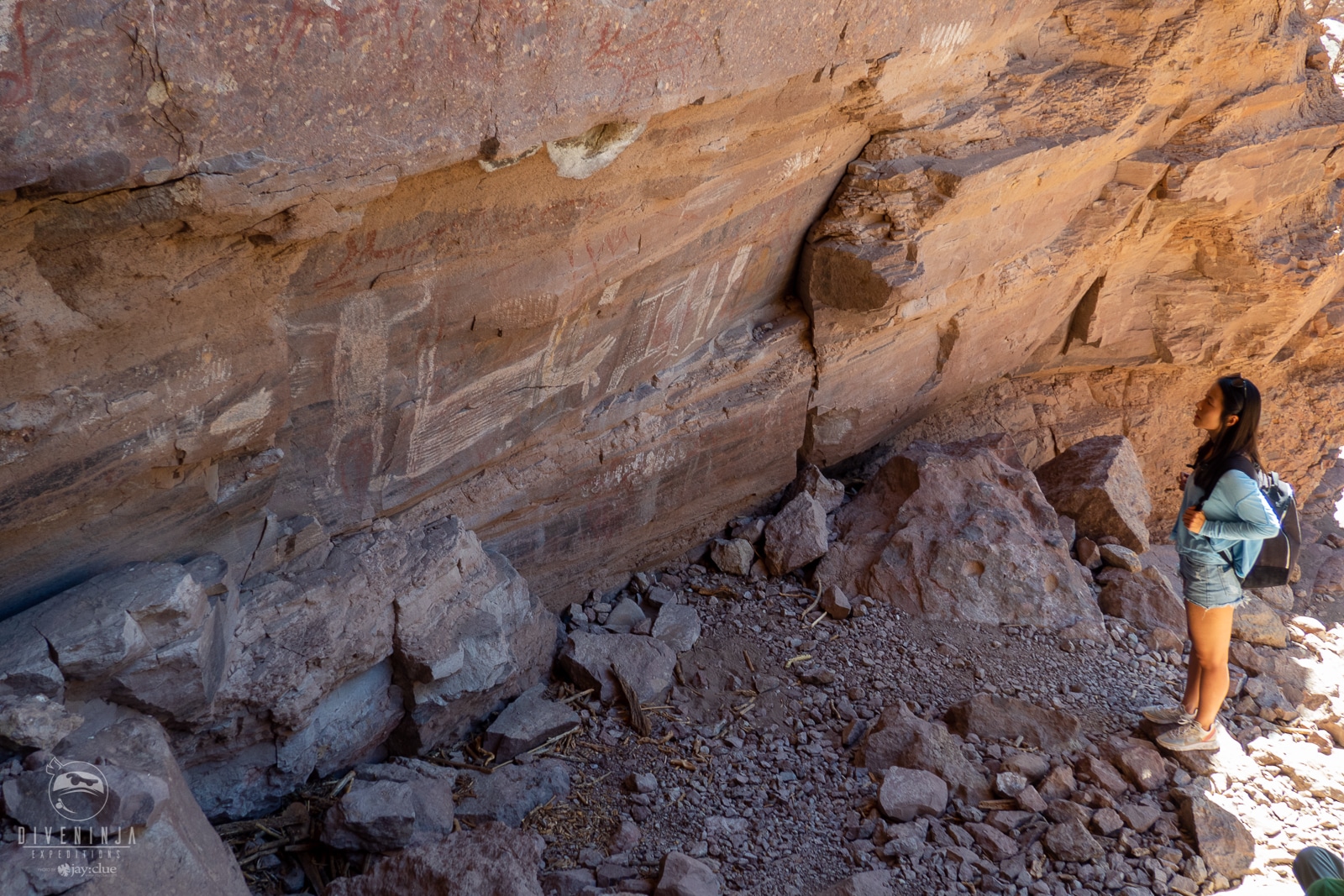
- Frequently we believe that having a biologist guide is the best option. Although sometimes this could be a plus, tourist guides with proper certifications, training and/or experience can be just as good or even better. Biology is a career where we are mostly trained to do research, and sometimes biologists don’t have the training, or even interest in science outreach or in guiding, so our degree is no warranty of quality interpretation. A well-trained tourist guide is someone that knows the proper sources of information and can deliver it to you in an accurate and serious, but fun way.
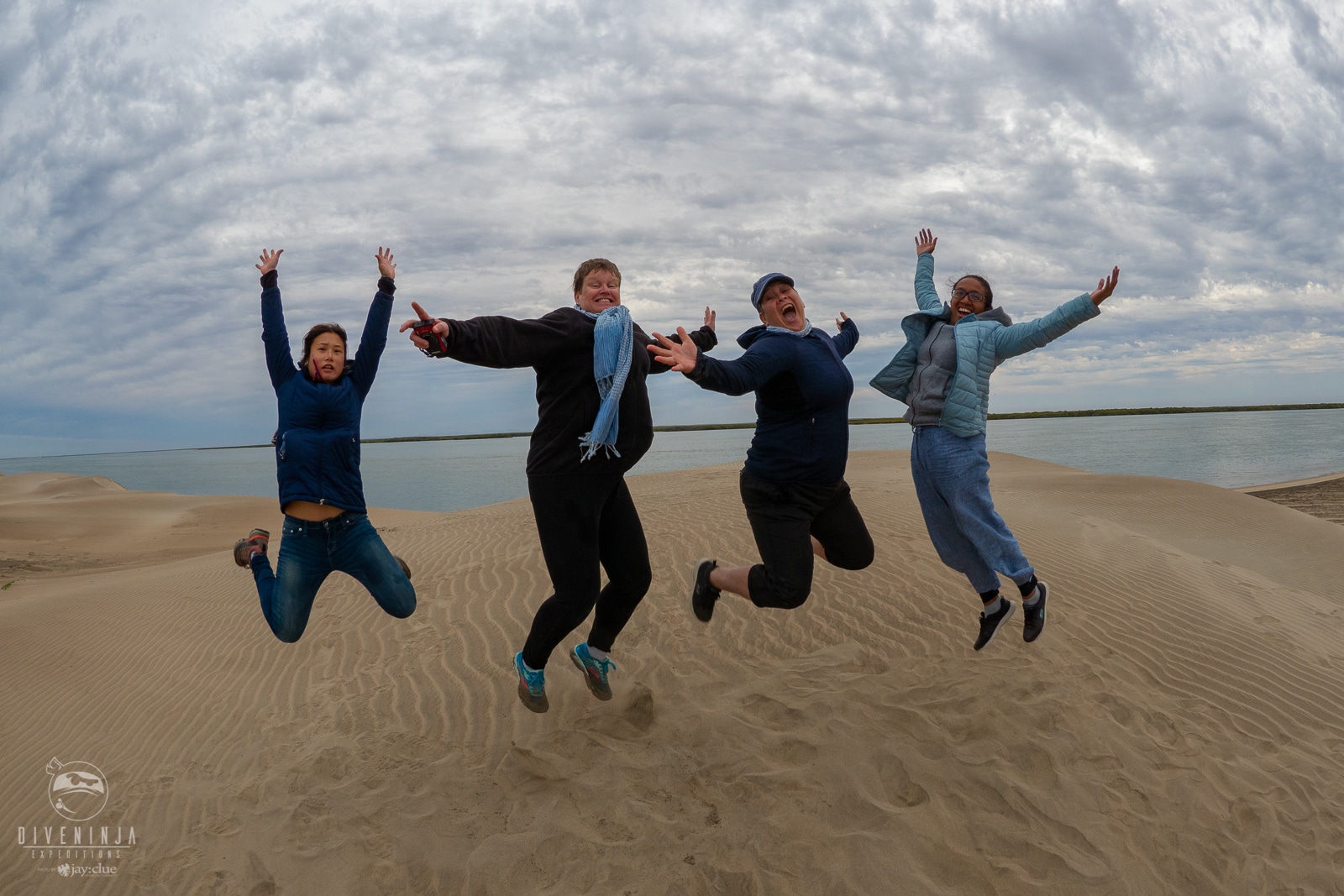
- Above all, passion is the key. Tourist guides should love and have passion for what they do. This is the best way to conserve, protect and transmit cultural and natural heritage to others.

While working on research this past winter I was able to meet and experience firsthand how some of the operators in Baja work. As an example of the above, one of the operators that welcomed me into their groups was Dive Ninja Expeditions in Cabo San Lucas. My experience with them showed they went above and beyond these requirements. They have well-experienced tour guides. They care about the local area and propose different solutions in trying to achieve zero waste policies and sustainable standards. They promote and help local businesses and people. They are involved in creating and actively participating in citizen science projects. And of course, they are very passionate and love what they do.
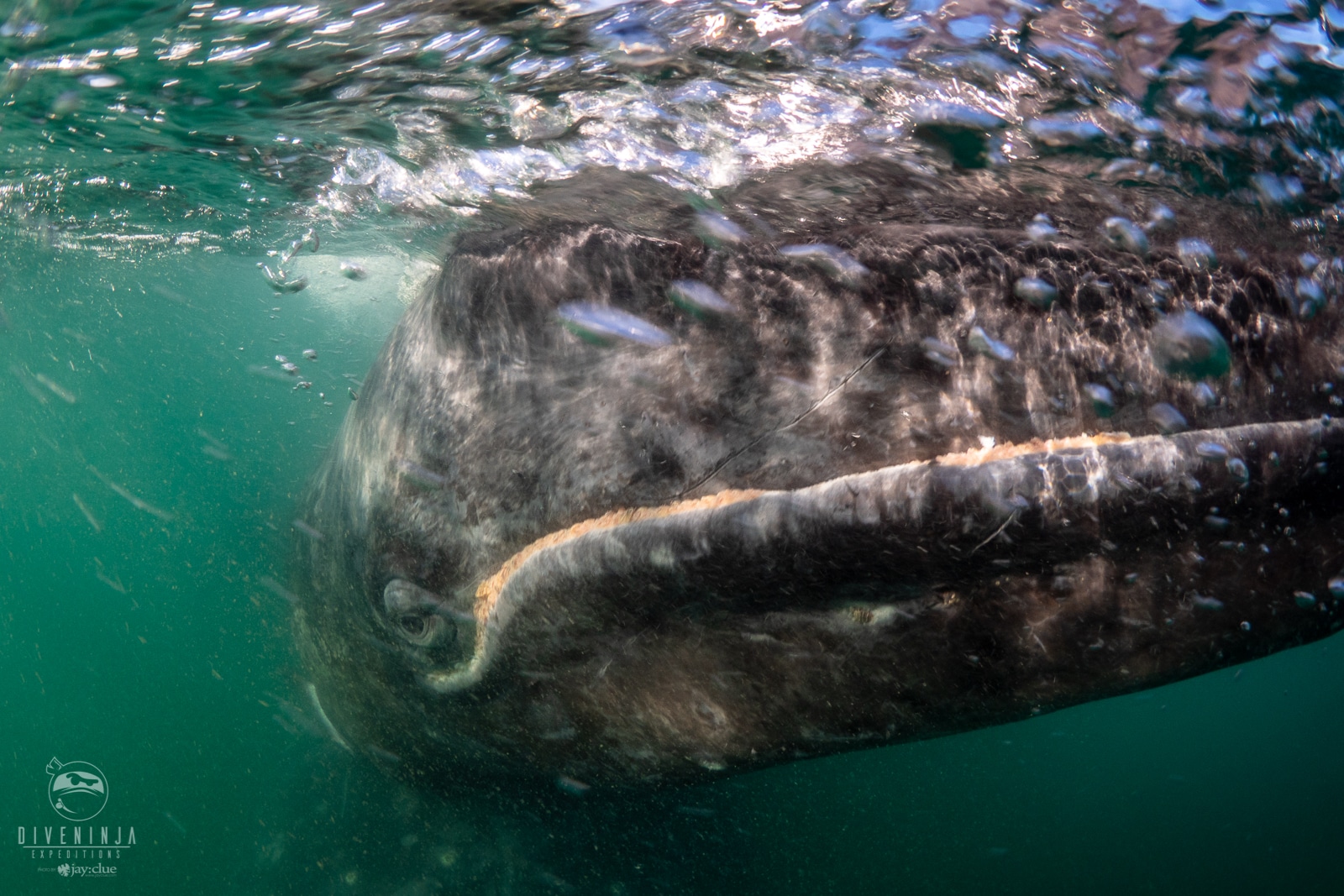
Ultimately what defines a true eco-tourism company is an organization that does not strive to be the best in the market, but instead they strive to be the best for the environment where they are. And so, I ask you, do you recall the last time you went on a trip with a true eco-tourism company?
Disclosure: Please bear in mind that this is my personal opinion and does not represent the institution I study in. If you have any doubts or comments, please feel free to contact me.
References
Ballantyne, R., & Packer, J. (2011). Using tourism free‐choice learning experiences to promote environmentally sustainable behaviour: the role of post‐visit ‘action resources’. Environmental Education Research, 17(2), 201-215.
Brochu, L., & Merriman, T. (2008). Personal interpretation: Connecting your audience to heritage resources.
Instituto Nacional de Ecología (INE), (1997). Programa de ecoturismo en áreas naturales de México. SEMARNAP-SECTUR.
SEMARNAT. (2019). Retrieved 7 September 2019, from http://aplicaciones.semarnat.gob.mx/estadisticas/compendio2010/10.100.13.5_8080/ibi_apps/WFServlet6b1e.html
Blogs
The Ocean Cleanup Breaks 10,000,000 KG Barrier

The Ocean Cleanup, the global non-profit project, has removed a verified all-time total of ten million kilograms (22 million lbs.) of trash from oceans and rivers around the world – approximately the same weight as the Eiffel Tower.
To complete its mission of ridding the oceans of plastic, The Ocean Cleanup uses a dual strategy: cleaning up the Great Pacific Garbage Patch (GPGP) to remove the plastic already afloat in the oceans, while stopping the flow of plastic from the world’s most polluting rivers.
Through cleaning operations in the GPGP and in rivers in eight countries, the cumulative total of trash removed has now surpassed ten million kilograms. This milestone demonstrates the acceleration of The Ocean Cleanup’s impact, while underlining the astonishing scale of the plastic pollution problem and the need for continued support and action.
While encouraging for the mission, this milestone is only a staging point: millions more tons of plastic still pollute our oceans and The Ocean Cleanup intends to continue learning, improving and innovating to solve this global catastrophe.
This announcement comes as governments from around the world meet to continue negotiations to develop a new legally binding instrument to end plastic pollution at INC4 in Ottawa, Canada. Representatives of The Ocean Cleanup will be in attendance and the organization will be urging decision-makers to collaborate towards a comprehensive and ambitious global treaty which addresses plastic at all stages of its life cycle and in all marine environments worldwide, including in areas beyond national jurisdiction.
It is encouraging to see that the need for remediation is reflected in the various options for potential treaty provisions. It is essential that the final treaty contains clear targets for the remediation of legacy plastic pollution, and reduction of riverine plastic emissions.
Tackling plastic pollution requires innovative and impactful solutions. The treaty should therefore incentivize the innovation ecosystem by fostering innovations that make maximal use of data, technology and scientific knowledge – such as those designed and deployed by The Ocean Cleanup.
‘After many tough years of trial and error, it’s amazing to see our work is starting to pay off – and I am proud of the team who has brought us to this point.’ said Boyan Slat, Founder and CEO of The Ocean Cleanup. ‘While we still have a long way to go, our recent successes fill us with renewed confidence that the oceans can be cleaned.’
The Ocean Cleanup was founded in 2013 and captured its first plastic in 2019, with the first confirmed catch in the GPGP coming soon after the deployment of Interceptor 001 in Jakarta, Indonesia. After surpassing one million kilograms of trash removed in early 2022, the non-profit project has since progressed to the third iteration of its GPGP cleaning solution, known as System 03, and a network of Interceptors currently covering rivers in eight countries, with more deployments set for 2024.
About The Ocean Cleanup
The Ocean Cleanup is an international non-profit organization that develops and scales technologies to rid the world’s oceans of plastic. They aim to achieve this goal through a dual strategy: stemming the inflow via rivers and cleaning up the legacy plastic that has already accumulated in the ocean. For the latter, The Ocean Cleanup develops large-scale systems to efficiently concentrate the plastic for periodic removal. This plastic is tracked and traced through DNV’s chain of custody model to certify claims of origin when recycling it into new products. To curb the tide via rivers, The Ocean Cleanup has developed Interceptor™ solutions to halt and extract riverine plastic before it reaches the ocean. Founded in 2013 by Boyan Slat, The Ocean Cleanup now employs a broadly multi-disciplined team of approximately 140. The foundation is headquartered in Rotterdam, the Netherlands.
For more information, visit: theoceancleanup.com and follow @theoceancleanup on social media.
Marine Life & Conservation
Steve Backshall to headline Shark Trust’s flagship event: For the Love of Sharks

Join a host of amazing, shark loving, speakers including Steve Backshall and the Shark Trust team for an evening celebrating shark conservation at the Royal Geographical Society in London this November.
Date: 29th November 2024
Time: 6-10pm
Location: Royal Geographical Society, London
Tickets: https://www.sharktrust.org/Event/flos24
The event will be a celebration of all things shark. Those lucky enough to get hold of tickets will hear from engaging guest speakers with a passion for sharks.
The line-up includes (*subject to change if unforeseen circumstances arise)
Steve Backshall: One of television’s busiest presenters, BAFTA award-winning wildlife expert Steve has been passionate about the wild world ever since he was young.
Steve’s impressive TV career has taken him all around the world, investigating a wide array of species and environments. Steve has filmed over 100 hours of children’s wildlife programmes with the BAFTA award winning Deadly 60 franchise and recently, with Sky Nature, for his new series ‘Whale with Steve Backshall’. He has been a patron for the Shark Trust for 10 years.
Simon Rogerson: is a photojournalist specialising in natural history, diving and the sea.
He is editor of SCUBA magazine, the official journal of the British Sub-Aqua Club. Simon started his career as a crime reporter but gravitated towards his ‘less depressing’ interest in underwater exploration, joining the staff of DIVE magazine in 1999. In 2005 he was named ‘Editor of the Year’ in the PPA’s Independent Publishing Awards. Simon also works as a freelance writer, contributing frequently to the Sunday Times and Telegraph, in addition to BBC Wildlife, Esquire, and a host of international diving magazines. He is the author of a book, Dive Red Sea, published by Ultimate Sports. Now based in Berkshire, Simon has been a Patron of the Shark Trust for 20 years.
More speakers to be announced soon. Head to the Shark Trust website to learn more.
The evening will also allow guests the final chance to see the Oceanic 31, shark art exhibition. Some of the artwork will be auctioned/raffled at the event, while the rest will be auctioned online to raise money for the Shark Trust Oceanic Programme.
For the Love of Sharks is an evening with something for everyone who is interested and fascinated by sharks. Join the Shark Trust, their Patrons, Trustees and Staff, along with a host of supporters for this celebration of shark conservation.
For more information or to buy a ticket: https://www.sharktrust.org/Event/flos24
-

 News3 months ago
News3 months agoCapturing Critters in Lembeh Underwater Photography Workshop 2024: Event Roundup
-

 Marine Life & Conservation Blogs3 months ago
Marine Life & Conservation Blogs3 months agoCreature Feature: Swell Sharks
-

 Blogs2 months ago
Blogs2 months agoMurex Resorts: Passport to Paradise!
-

 Blogs2 months ago
Blogs2 months agoDiver Discovering Whale Skeletons Beneath Ice Judged World’s Best Underwater Photograph
-

 Gear Reviews3 weeks ago
Gear Reviews3 weeks agoGEAR REVIEW – Revolutionising Diving Comfort: The Sharkskin T2 Chillproof Suit
-

 Gear Reviews3 months ago
Gear Reviews3 months agoGear Review: Oceanic+ Dive Housing for iPhone
-

 News2 months ago
News2 months agoPADI Teams Up with Wellness Brand Neuro to Drive Ocean Change and Create a Blue State of Mind
-

 Marine Life & Conservation2 months ago
Marine Life & Conservation2 months agoSave the Manatee Club launches brand new webcams at Silver Springs State Park, Florida

















